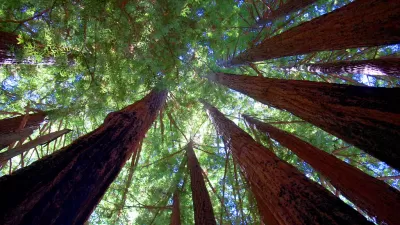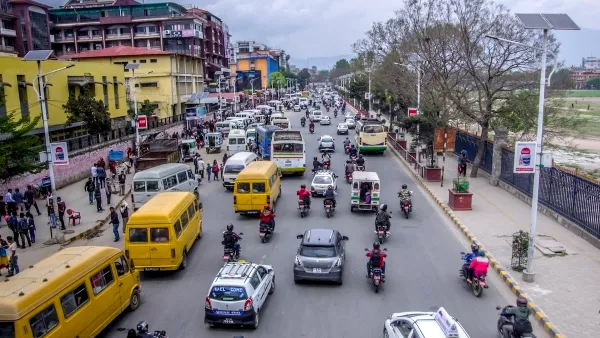The Washington Post Reports a small bit of good news regarding climate change, produced on the same day as a large heap of bad news regarding climate change.

"[A] paper published in Nature Communications Tuesday actually contained some of the better news about climate change that we’ve heard in a while," according to an article by Chris Mooney. Which is to say, it's a "modest bit of evidence suggesting a slight, temporary reprieve in the rate at which we’re altering the planet."
The paper is by Trevor Keenan and colleagues from the Lawrence Berkeley National Laboratory. It examines the terrestrial carbon sink, which is the capacity of trees, plants, and features of the planet are pulling carbon dioxide from the air.
"What the new study shows is that from 2002 to 2014, plants appear to have gone into overdrive, and started pulling more carbon dioxide out of the air than they had before," explains Mooney. Mooney goes into more of the factors involved with the planet's reaction to the additional carbon in the atmosphere, including some that the casual environmentalist might not have encountered before. Finally, Monney explains that the study does not suggest that terrestrial carbon sinks might save humanity from the effects of climate change.
FULL STORY: If you’re looking for good news about climate change, this is about the best there is right now

Maui's Vacation Rental Debate Turns Ugly
Verbal attacks, misinformation campaigns and fistfights plague a high-stakes debate to convert thousands of vacation rentals into long-term housing.

Planetizen Federal Action Tracker
A weekly monitor of how Trump’s orders and actions are impacting planners and planning in America.

In Urban Planning, AI Prompting Could be the New Design Thinking
Creativity has long been key to great urban design. What if we see AI as our new creative partner?

King County Supportive Housing Program Offers Hope for Unhoused Residents
The county is taking a ‘Housing First’ approach that prioritizes getting people into housing, then offering wraparound supportive services.

Researchers Use AI to Get Clearer Picture of US Housing
Analysts are using artificial intelligence to supercharge their research by allowing them to comb through data faster. Though these AI tools can be error prone, they save time and housing researchers are optimistic about the future.

Making Shared Micromobility More Inclusive
Cities and shared mobility system operators can do more to include people with disabilities in planning and operations, per a new report.
Urban Design for Planners 1: Software Tools
This six-course series explores essential urban design concepts using open source software and equips planners with the tools they need to participate fully in the urban design process.
Planning for Universal Design
Learn the tools for implementing Universal Design in planning regulations.
planning NEXT
Appalachian Highlands Housing Partners
Mpact (founded as Rail~Volution)
City of Camden Redevelopment Agency
City of Astoria
City of Portland
City of Laramie





























